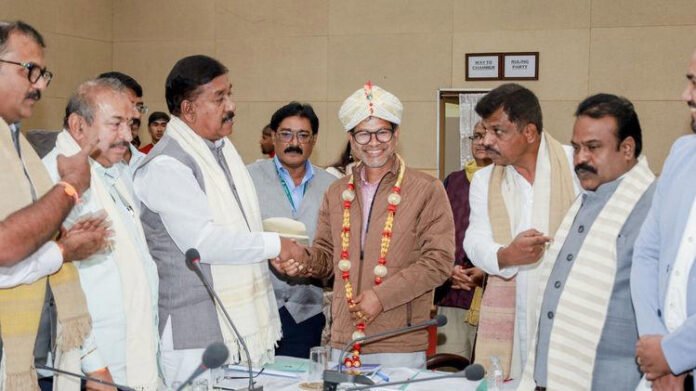A recent interstate committee meeting in Shillong, Meghalaya, brought major focus to welfare policies for marginalised communities. Representatives from multiple northeastern states attended the session to exchange ideas and form collaborative strategies for inclusive development.
The goal was clear—to improve the lives of underserved populations by strengthening policies and ensuring their implementation at the grassroots level.
Read More: Kuki Groups Demand Buffer Zones, Separate UT in Manipur
Welfare Policies for Marginalised Communities Take Center Stage
Officials prioritised welfare policies for marginalised communities during the conference. They addressed issues faced by tribal groups, economically weaker families, and people with disabilities.
Meghalaya’s Chief Secretary led the discussion, urging states to develop region-specific solutions. He highlighted the need for data-driven approaches and called for active community involvement in the policy-making process.
Moreover, states agreed that aligning central and state-level schemes would make welfare delivery faster and more effective. By merging resources and efforts, governments can eliminate duplication and reach more people.
Meghalaya Leads Northeast in Welfare Integration
Meghalaya showcased its inclusive approach through various recent initiatives. These included mobile health units for interior villages, vocational training for youth, and special education programs in government schools.
In contrast, other states pointed out common barriers such as terrain difficulties, staff shortages, and lack of infrastructure. Still, the atmosphere remained constructive, as each state shared potential solutions to bridge these gaps.
Officials applauded Meghalaya’s campaigns addressing gender disparities and empowering persons with disabilities. These programs offer models that other states can adapt to meet their unique needs.
Joint Recommendations and Action Plans
The committee finalized a set of practical recommendations. It will form a regional task force to oversee and evaluate progress on welfare policies for marginalised communities. This team will meet quarterly and guide policy execution across the region.
Additionally, the states committed to:
- Launching public outreach drives for awareness
- Conducting training programs for local governance teams
- Increasing budget allocation to remote tribal regions
- Creating real-time digital dashboards for beneficiary tracking
Importantly, each recommendation focuses on action. Participants agreed that transparency and community involvement should guide every step of the process.
Centre-State Coordination to Deepen Impact
Central government officials attending the session offered strong support. They acknowledged that policy design often succeeds at the central level but fails due to state-level delivery issues.
To solve this, the Ministry of Social Justice and Empowerment pledged technical support and additional funding. States must now submit specific project proposals focused on welfare policies for marginalised communities.
In addition, the Centre will organise training workshops for district officials. These sessions will enhance sensitivity and boost understanding of the complex challenges marginalised groups face.
Looking Ahead: Inclusive Growth as a Shared Goal
As the session wrapped up, leaders voiced a shared commitment to building inclusive governance. Meghalaya’s initiative to host this meeting set a strong example for regional collaboration.
With increased coordination and shared learning, northeastern states are now better positioned to strengthen welfare policies for marginalised communities. This shift can lead to reduced inequality and offer equal opportunities to all.
The future of the Northeast depends on sustained, cooperative efforts. Through regular dialogue and targeted action, states can close development gaps and bring meaningful change to those who need it most.


